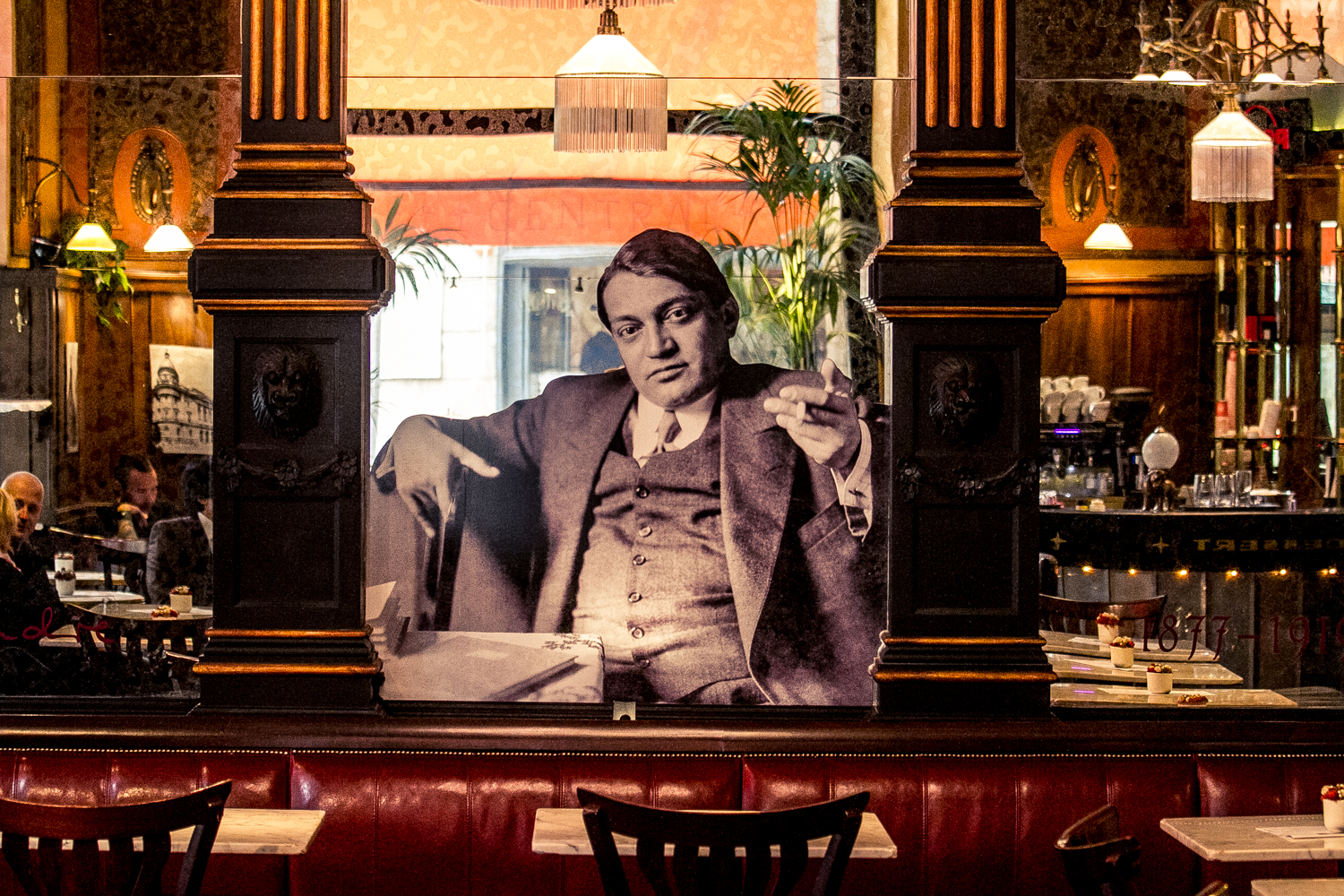Justifiably
famous for its role as a clubhouse for various literary greats, the building that originally housed
Centrál
café has experienced numerous
tribulations during its existence; in addition to surviving the ravages of two world wars,
for some time this urban
palace sheltered the
interestingly named Paprika-Center National Enterprise, then the Eötvös
Club, and in the 1990s it served as
a casino...
however, like a real classic, the true spirit of
Centrál is indestructible.
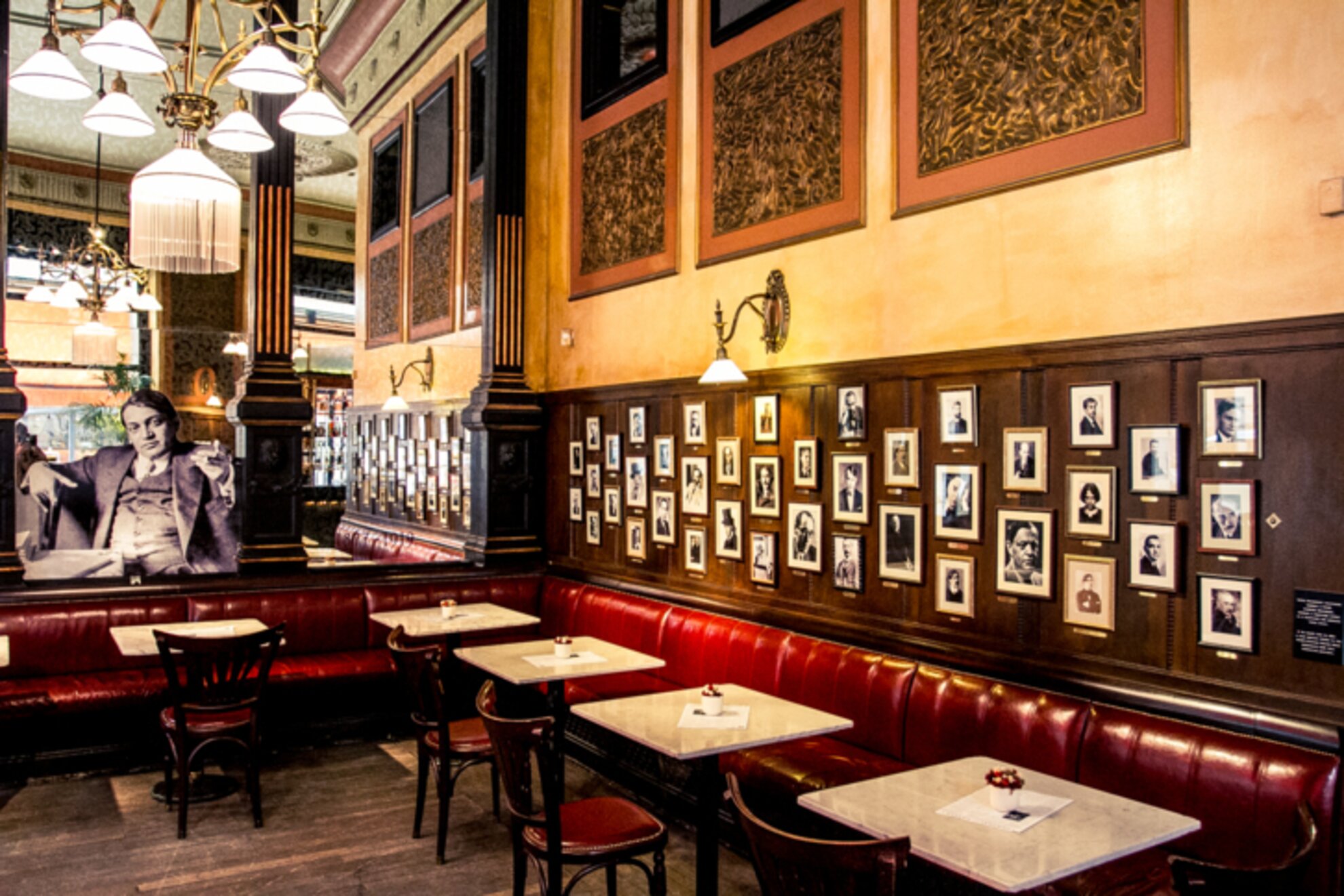
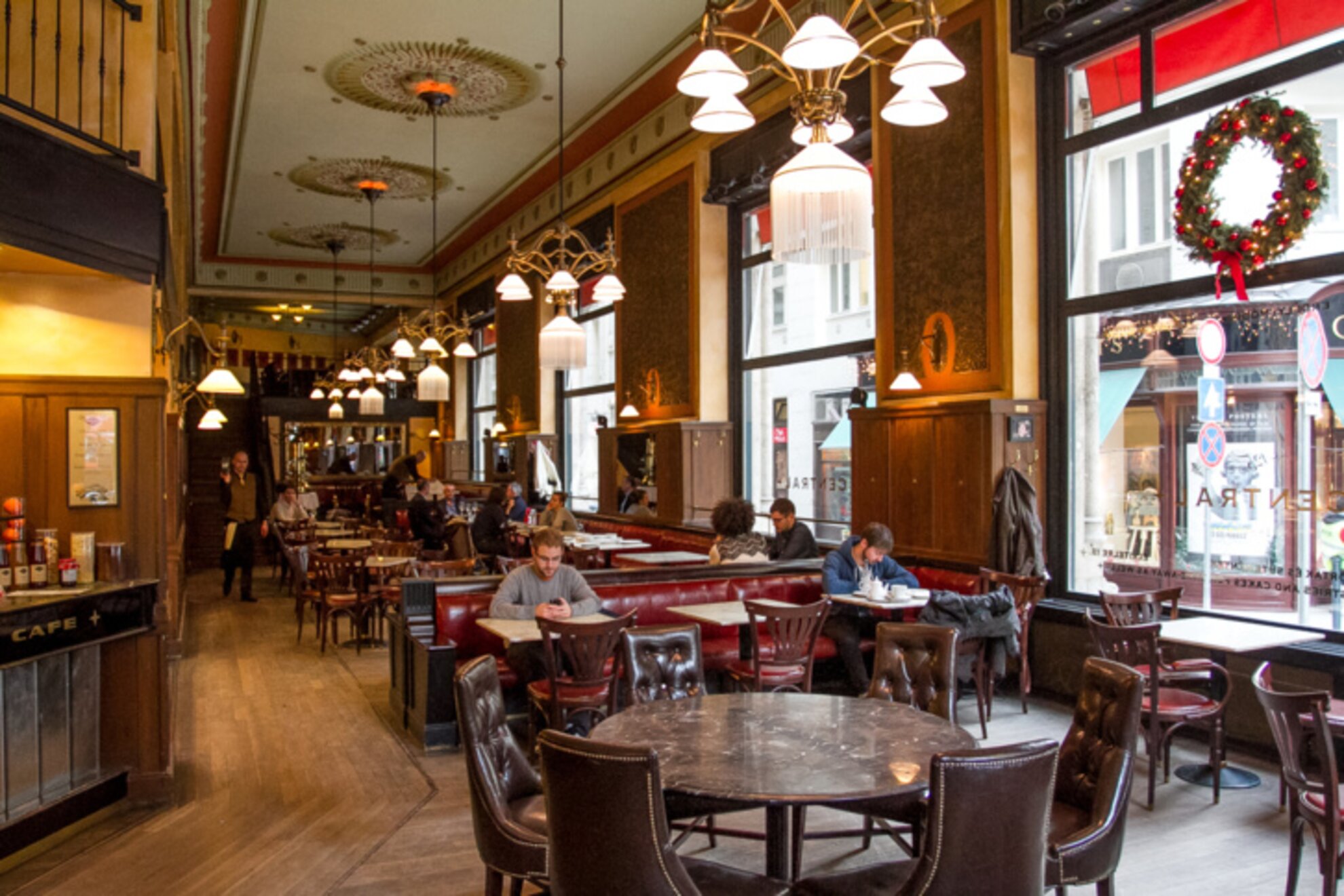
Soon after it first opened, this
coffee palace was both a meeting point and a cultural space where artists could feel at home; this was the usual hangout for the editorial team of Nyugat, one of Hungary's most important literary journals. However,
ordinary citizens also frequented the café, and in catering to popular tastes, the menu offered
recipes mixed from Hungarian, Turkish, Serbian, German, and Transylvanian flavors; this
culinary repertoire
remained much the same over
the years.
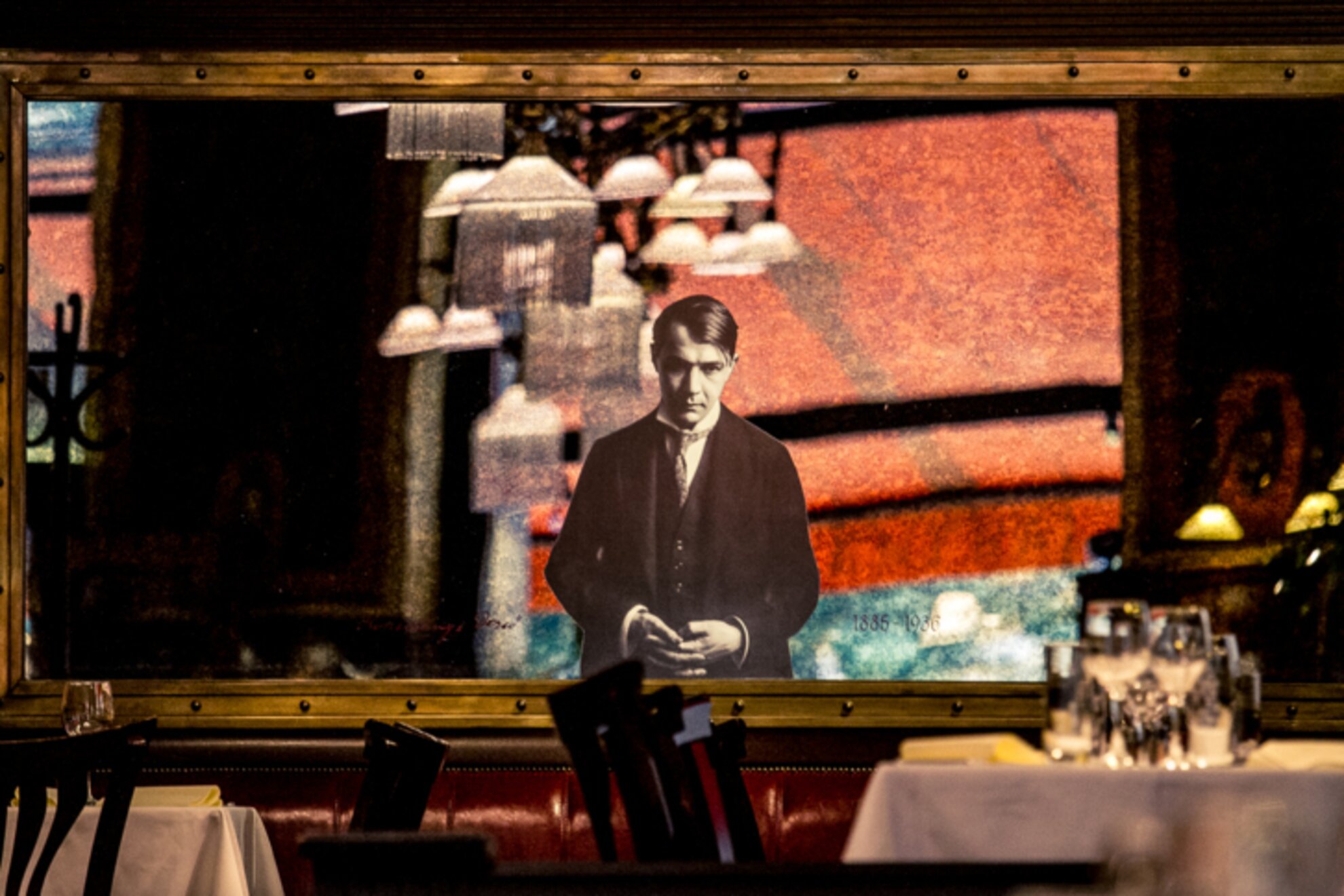
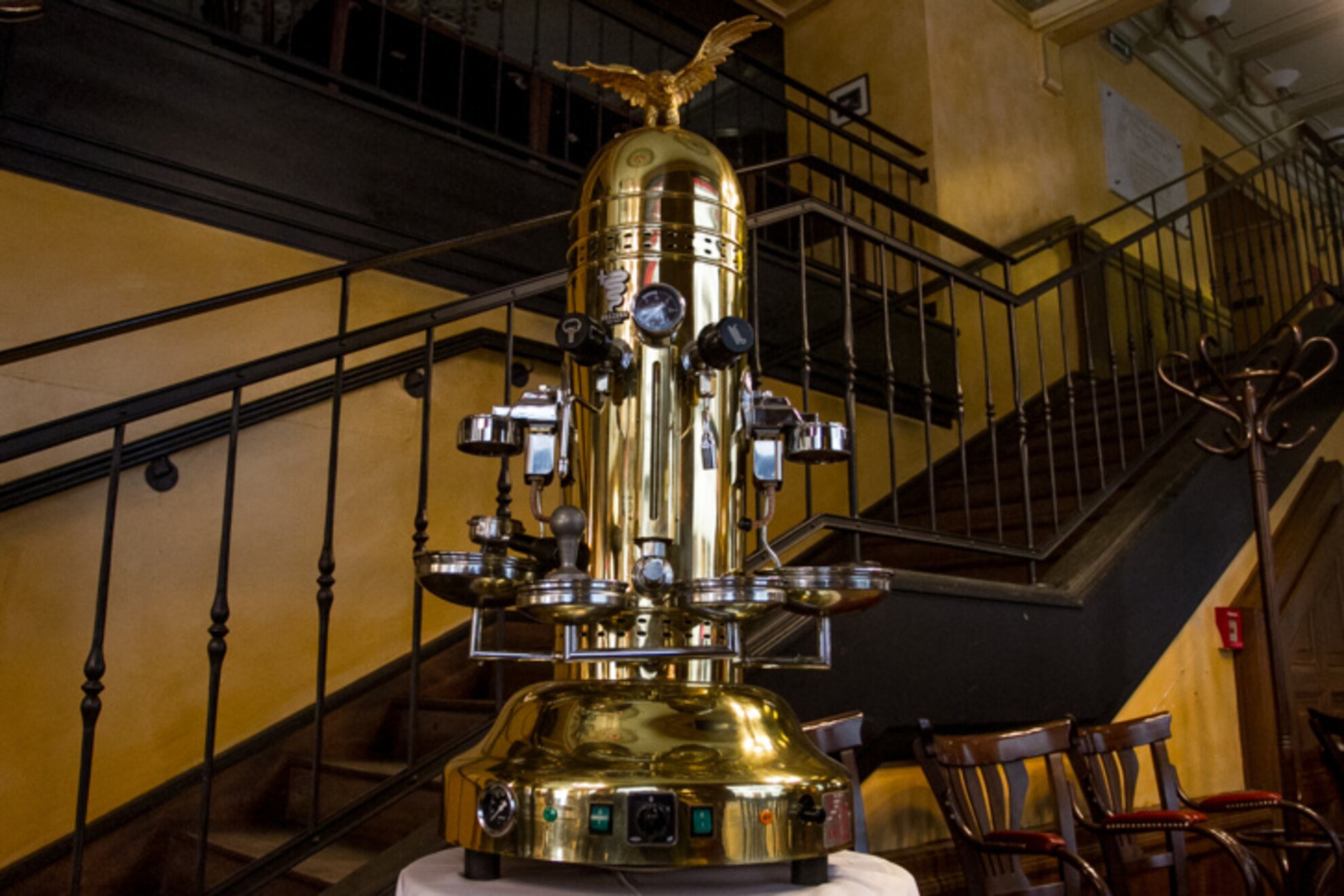
To enjoy a time-transcending daydream, visit this venue
for a coffee to start the day, or even an English breakfast. The kitchen now mostly offers bistro-style
dishes, so this is a fine place
to visit when you want to introduce visiting
family and
friends to a prominent
survivor from Budapest's stories
world of coffee palaces, while also providing them with a nice eatery for
genuine
Hungarian cuisine.
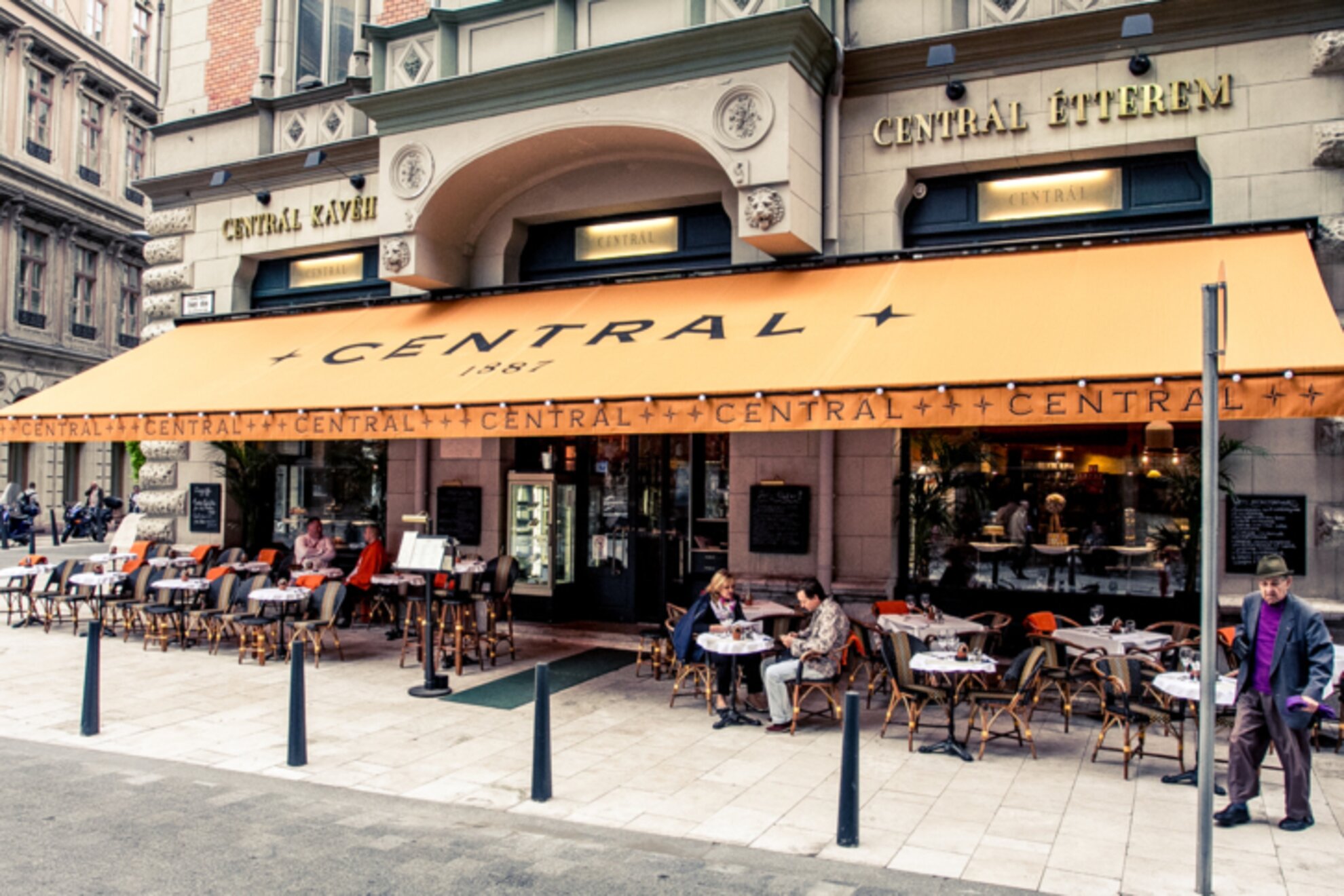
The renewal is most visible from
the exterior. The owner of Centrál asked the Austrian owners
of the neighboring Ernst Gallery to redesign the facade, and like in the old times,
Austrian and Hungarian cooperation created something truly original. Ernst Wastl was practically brought up in the cafés of Vienna, and after moving to Budapest he became a regular of Centrál since its reopening in 2000. Thus there are few who know the place, and coffeehouses in general, better than him.
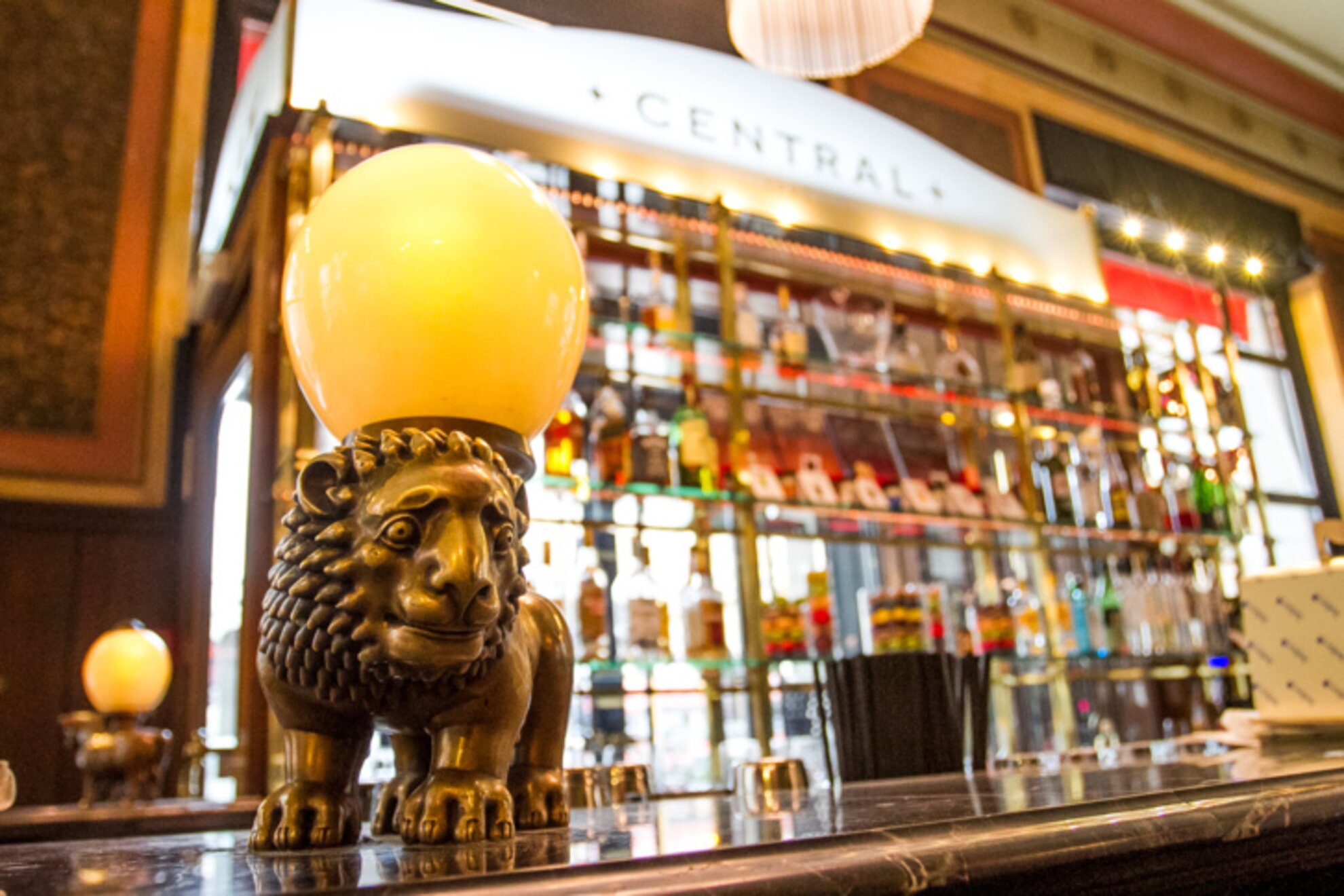
Mr. Wastl thought that the key to the café's success is the terrace; the sidewalk-dining space had
not been utilized previously, even
though it has a historical precedent for patio seating. The idea
was successful, aided with good timing –
the freshly renovated surroundings of
Ferenciek Square
make this area more tranquil thanks to less traffic, so diners can lounge here in a relatively peaceful setting.
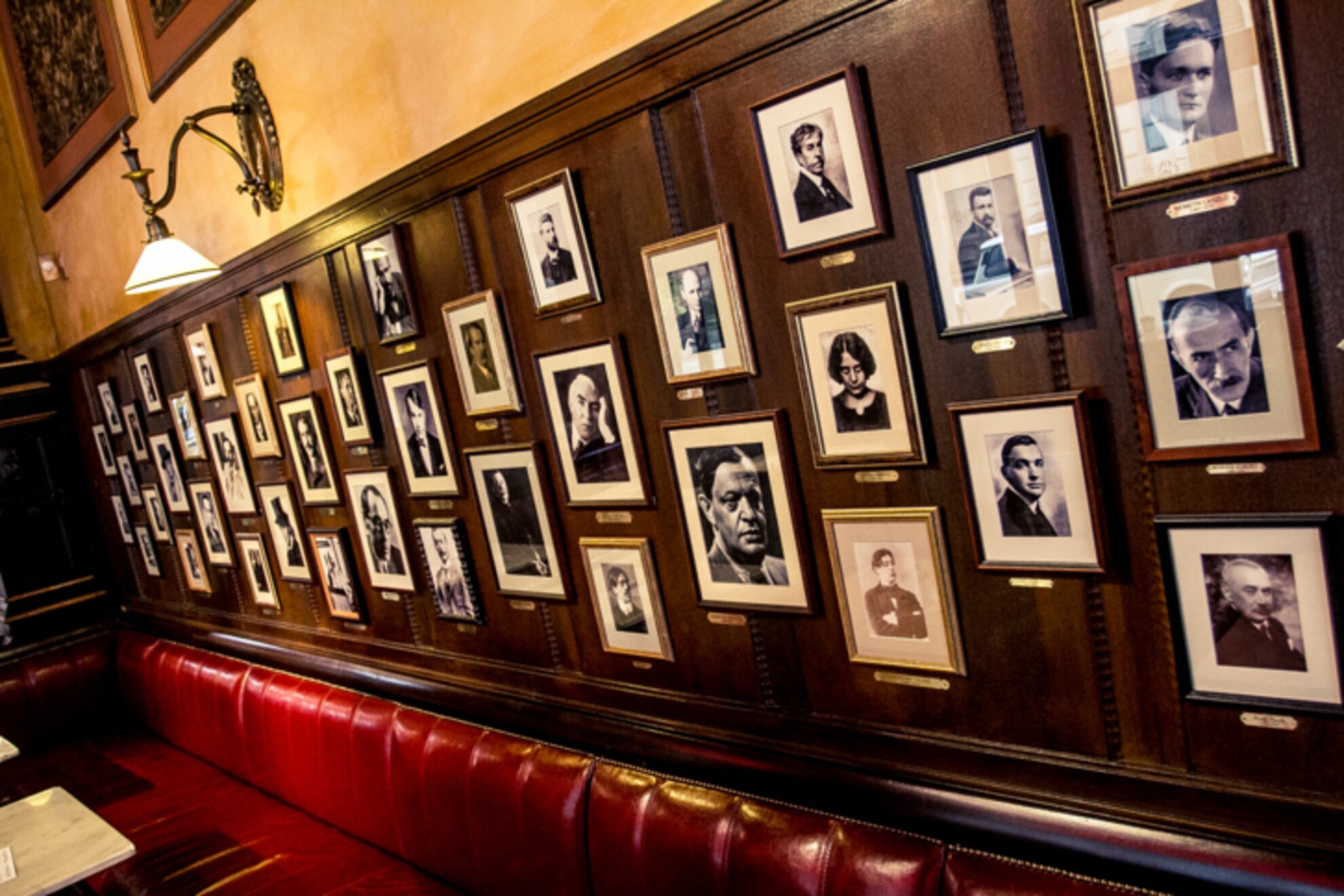
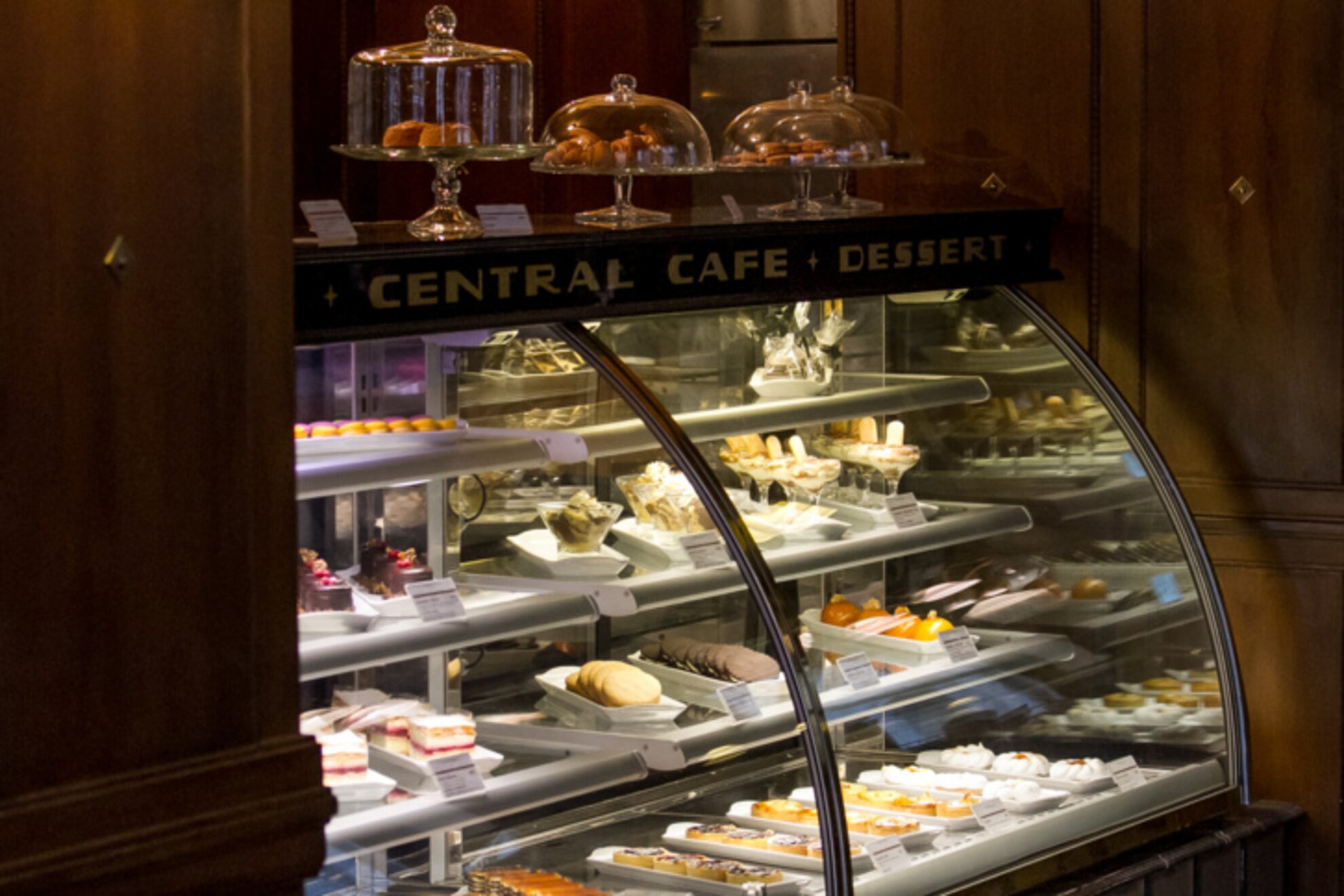
The other important ambition of the renovation
was to evoke the spirit of the old times; to do this, they placed
portraits of authors and poets
who were frequent guests here, along with small copperplates provided by the Petőfi Museum of Literature;
in the middle of one of the rooms, revered poet Endre Ady
observes the guests. Luckily, Centrál does not want to survive based only
on its historical fame, but
we think the nostalgia is not only suitable, but necessary. Moreover, the café is preparing book presentations, gastronomy events, and jazz concerts for the autumn months, so it will be worth checking out what is happening here in the future.
